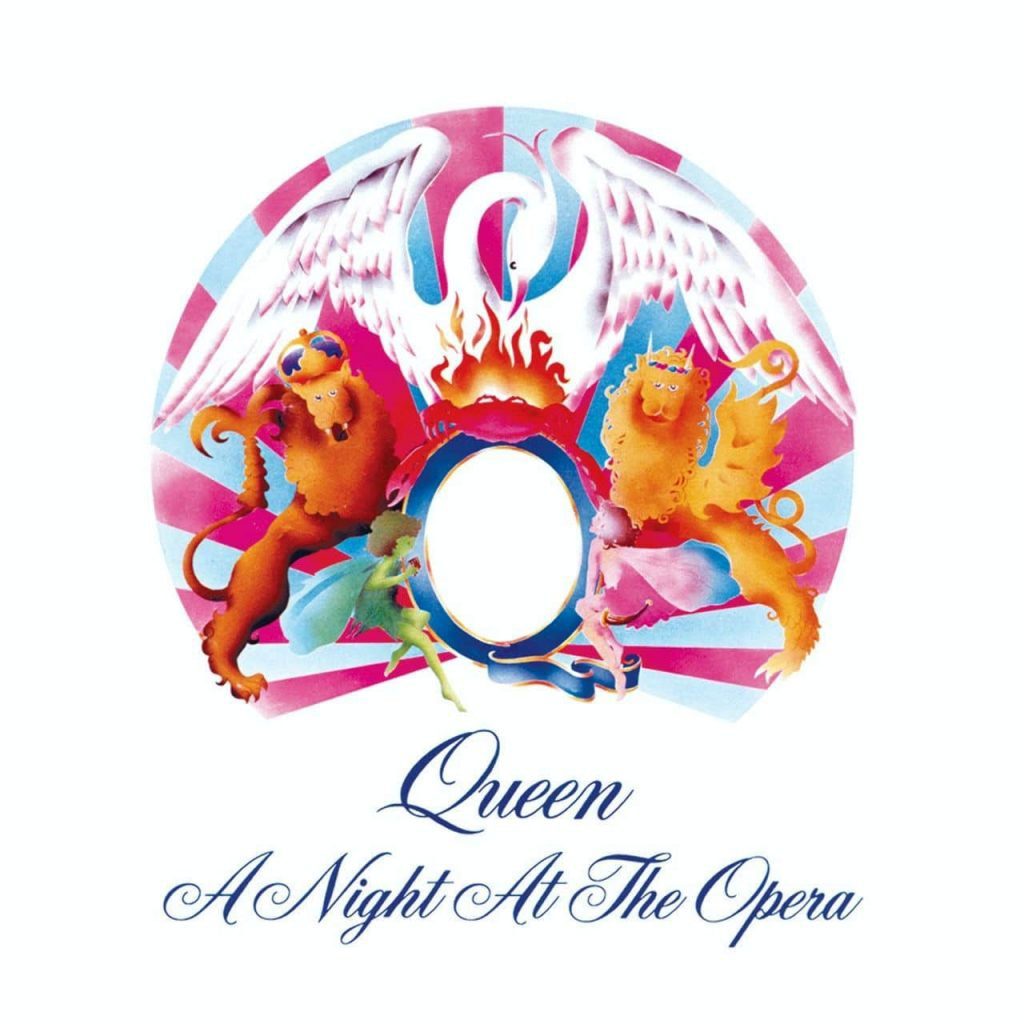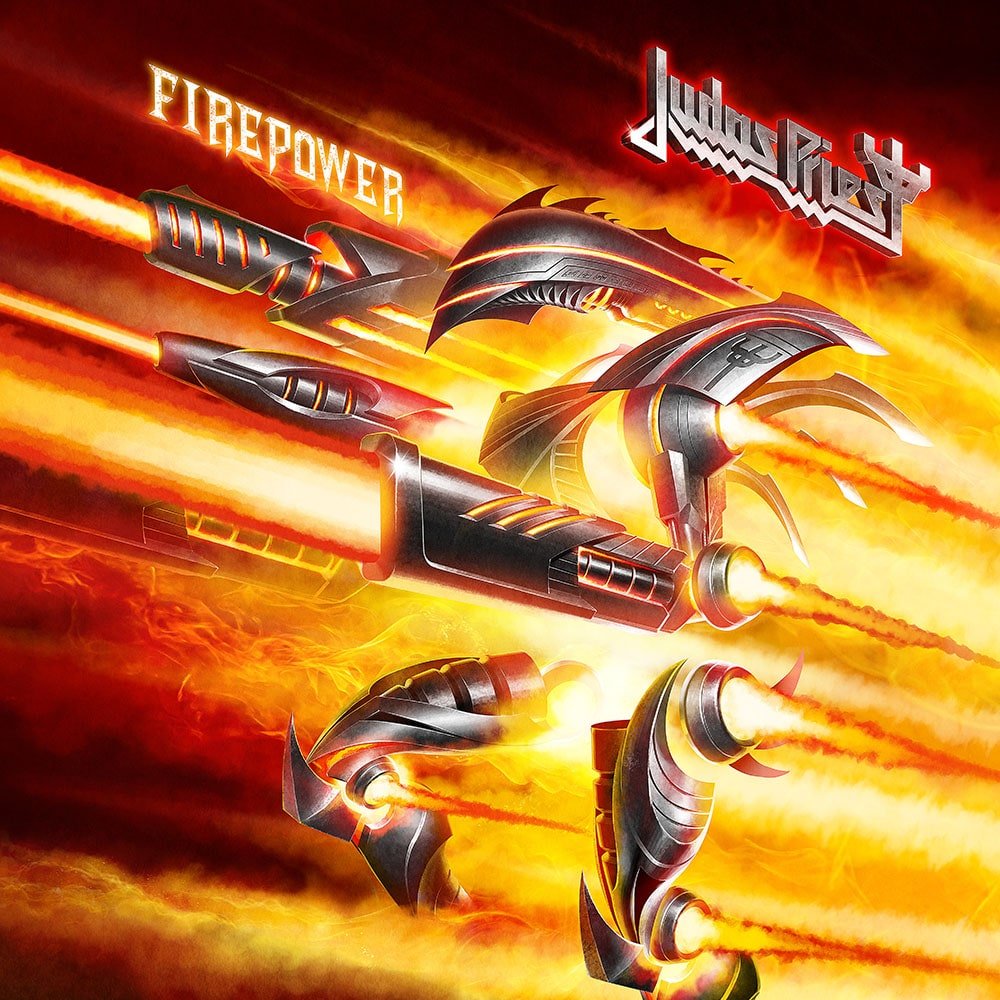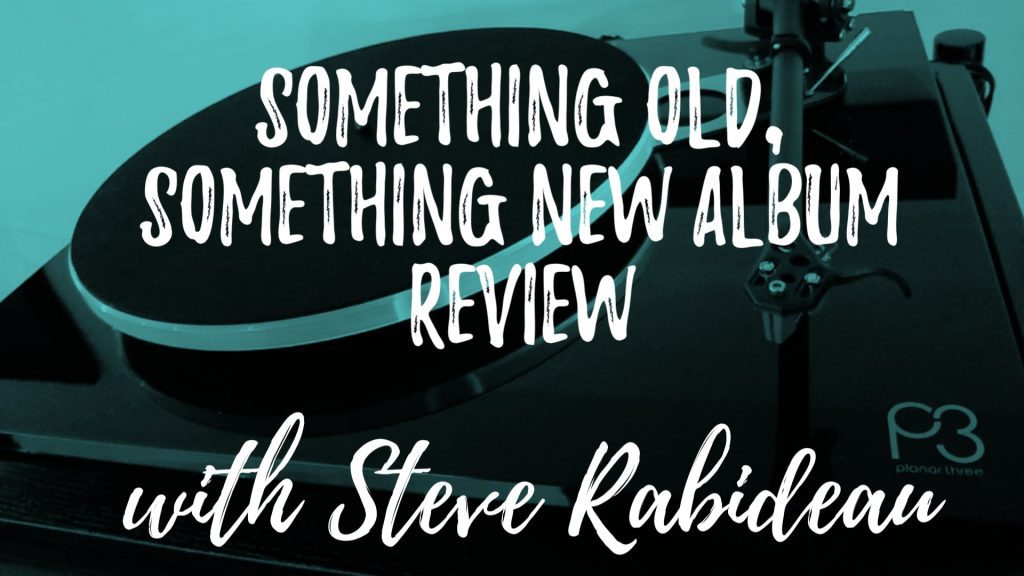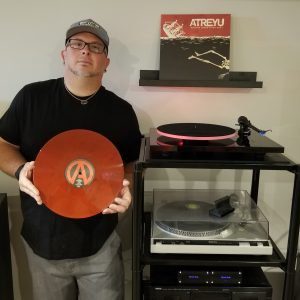It’s June! Already! And June is PRIDE MONTH. I feel like the world has become much more hospitable and accepting of people and our differences, but I also know that for many, there is still a long way to go. For part 7 of Something Old, Something New Album Review, we’re going to check out a couple of albums with frontmen who are icons in the LGBTQ community.
Something Old

Queen – A Night At The Opera
1975 Elektra Records
Rating: 5/5
What can be said about not just Freddie Mercury, but Queen as a band? They were, and are, one of the greatest bands of all time. Period, end of discussion. And although Mercury never publicly acknowledged his sexuality, he never hid it either. I do believe he just lived his life the way he wanted, and didn’t want to be judged for it, and also not have his band and his music be judged either. And since his life was 100% in the pre internet era, he basically did what he wanted. There is a fantastic book I read not too long ago called “The Life, Death and Legacy of Freddie Mercury”. It details not only Freddie’s life, but the rise of Queen, and how the Aids epidemic came to be. Very interesting read. As far as this album, Queen released many great records, but this is probably their magnum opus. This was their fourth record, their third record, Sheer Heart Attack finally bringing them some commercial success with the single “Killer Queen”. But unfortunately, the poor performance of their first 2 records meant they were broke. But with the confidence of a hit behind them, they got very adventurous, making what was at the time the most expensive record ever made. The expense came from their extensive use of what’s called “multitracking”. What multitracking is in a nutshell, is recording many things seperately(drums, guitar, bass, vocals) and layering them together. Multitrack recording was invented in 1955.
Before that a band played together and was recorded all playing at the same time, hoping nobody screwed up. The technology moved quickly. Four tracks, then 8, then 16, and by the time Queen recorded this record, 24. What the band would do is record the instruments on a track each, so they may take up anywhere from 6-10 tracks. That left at least 14 more tracks for vocals. They would layer vocal track after vocal track on top of each other.
Sometimes for vocal harmonies, sometimes just to make the one vocal BIGGER. Many bands did this after, but Queen and producer Roy Thomas Baker were the first ones that took it to this extreme, and virtually nobody did it better. The album featured what became many Queen standards including the brash opener “Death On Two Legs (Dedicated to…)””, “I’m In Love With My Car”, “You’re My Best Friend”, and what became their signature song “Bohemian Rhapsody”. Mercury wrote the song in blocks and that’s how it was recorded by himself and the band, with nobody but Freddie knowing what the final version would sound like. My favorite part of the history of the song is the guts it took to release it as not only a single, as it was unlike anything in any genre of music, but the FIRST single from the album. The band had literally had one single hit before this. “Killer Queen” is a great song, but not incredibly complicated. It would be like a cook making a pretty good plate of Spaghetti, then their next meal being a dozen courses of the most complicated dishes imaginable. Truly incredible and gutsy. But as with most things in life, the biggest rewards come from the biggest risks. The song has charted multiple times over the years, a testament to it’s brilliance. Queen and Mercury would have many brilliant moments over the years, but unfortunately Mercury’s life would be tragically cut short as on November 24th, 1991 he died of complications of Aids. Safe to say we may never see an artist and performer with that level of genius and showmanship again. Rest in peace Freddie.
Something New

Judas Priest – Firepower
2018 Epic Records
Rating: 4/5
In an interview in 1998 on MTV, while he was promoting a solo album and was actually not in Judas Priest, vocalist Rob Halford publicly come out as a gay man. And when he did, millions of people connected many extremely obvious dots. None more obvious than the bands look. Judas Priest had been known since the late 70’s for wearing leather and studs. For a long time, the look was attributed to biker culture…..unless you actually looked at actual bikers. They looked nothing like how Judas Priest looked. What the look was actually attributed to the gay S&M scene in places like New York in the late 70’s, early 80’s. Rob had kept his sexuality secret for fear of backlash from the heavy metal community.
Hiding his sexuality unfortunately caused him to have bouts of depression and isolation, which he combatted with drugs and alcohol. He ended up in rehab in 1986 and has been sober since. Although he has publicly stated that he wishes society’s attitudes would have come farther towards being accepting over the years, he has also noted that his announcement didn’t effect Judas Priests record sales at all. And when he returned to the band in 2003, and were coheadliners of the 2004 edition of the Ozzfest tour the fans (including me at the Michigan date) showed him and the rest of the band that we accepted him for what he is, one of the greatest Heavy Metal vocalists of all time, regardless of sexuality. When he hit the famous high note in “Victim of Changes”, nobody cared about sexual preferences. Because it shouldn’t matter. Being a good person matters. And that’s it. And since then, Rob Halford and Judas Priest have continued to release great albums and tour. Original guitarist KK Downing retired in 2011 amid some controversy, being replaced by Richie Faulkner. Their other orignal guitar player Glenn Tipton revealed in 2018 that he had been diagnosed with Parkinsons, and while he occasionally still performs with the band, he has largely retired and famed metal producer Andy Sneap has performed live duties with the band. In 2018, they released Firepower. After releasing concept records they actively decided to make a lean powerful metal record, and Firepower is their best since famed 1990 comeback record Painkiller. Drummer Scott Travis shows his skill and driving force like he hadn’t since Painkiller. The title track leads off the album with double bass drumming and one of the fastest songs they’ve ever written. The next track, single “Lightning Strike” is mid paced and groovy and shows they still know how to write classic metal hooks. The album never lets up and is good all the way through. With Andy Sneaps involvement in production, it sounds like a modern heavy metal record, but doesn’t sacrifice the classic Priest sound. The band has hinted at retirement for years, and if they did end it, this would be a hell of a send off. But if they’re still capable of producing albums like this, I hope they don’t hang it up.
Thanks for reading. I hope everyone who celebrates has a happy pride month and everyone else respects and celebrates everyones right to enjoy it. You can find me @Stevedestruct on Instagram.

